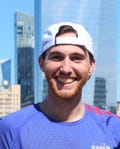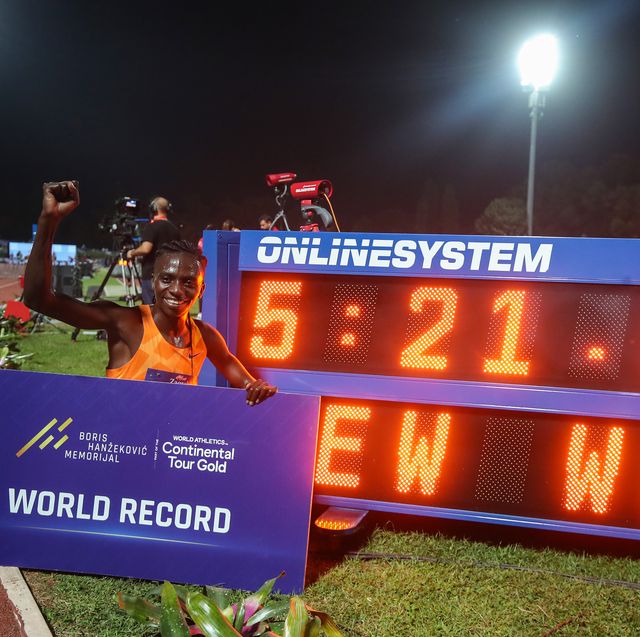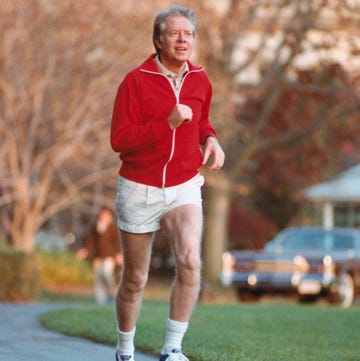- Burundi’s Francine Niyonsaba broke the 2,000-meter world record, running 5:21.56 in Zagreb on Tuesday, September 14.
- The previous record, 5:23.75, was set by Ethiopia’s Genzebe Dibaba in 2017.
- This record is the latest in a string of impressive performances for Niyonsaba, a DSD athlete who has started competing in longer distance events.
Francine Niyonsaba shattered the world record in the 2,000 meters at the Boris Hanzekovic Memorial on Tuesday, September 14. She ran 5:21.56, beating Ethiopia’s Genzebe Dibaba’s previous record of 5:23.75, set in 2017, by more than two seconds.
The 28-year-old Burundian looked relaxed and excited on the line at the meet in Zagreb, Croatia, which was a part of the 2021 World Records Fall at Adizero Road to Records Race series. After the gun went off, she settled into third place behind the two pacemakers.
→ Join Runner’s World+ for all the latest running and health news! 🏃🏾♀️🏃🏻♂️
After three strong laps at 64-second pace, the pacers stepped off the track, and Niyonsaba continued to lead, with Ethiopia’s Freweyni Hailu—who finished fourth in the 1500 Advertisement - Continue Reading Below—sticking close behind her.
Niyonsaba hit the bell lap in 4:20, and Hailu made a push to pass with 300 meters to go. The burst wasn’t strong enough, as Niyonsaba countered and Hailu began to fade. After that, it was Niyonsaba versus the clock. Grimacing with 100 meters to go, she powered down the home stretch to cross in 5:21.56. Hailu finished second in 5:25.56.
After the finish, the meet director came over to hug the ecstatic Burundian to celebrate the first-ever world record set in Zagreb.
Niyonsaba’s world record continues an impressive string of recent performances. After placing fifth in the 10,000 Advertisement - Continue Reading Below, Best Running Shoes 2025 Prefontaine Classic 2-Mile Run, winning in 9:00.75. Niyonsaba then went on to clock personal bests of 8:19.08 in the 3,000 meters and 14:25.34 in the 5,000 meters.
Niyonsaba classifies as a DSD athlete—an athlete with “differences of sexual development.” Are Average Runners Getting Faster? It Depends on DSD athletes in May 2019, forcing Niyonsaba, who won the 2016 Olympic silver medal in the 800 meters, to switch to either sprinting or longer distance events.
The new world best affirms Niyonsaba’s decision to move up in distance, as she is now considered one of the favorites for next year’s world championships, which will be held in Eugene, Oregon.

Chris Hatler is a writer and editor based in Philadelphia, Pennsylvania, but before joining Runner’s World and Bicycling, he was a pro runner for Diadora, qualifying for multiple U.S. Championships in the 1500 meters. At his alma mater the University of Pennsylvania, Chris was a multiple-time Ivy League conference champion and sub-4 minute miler.













